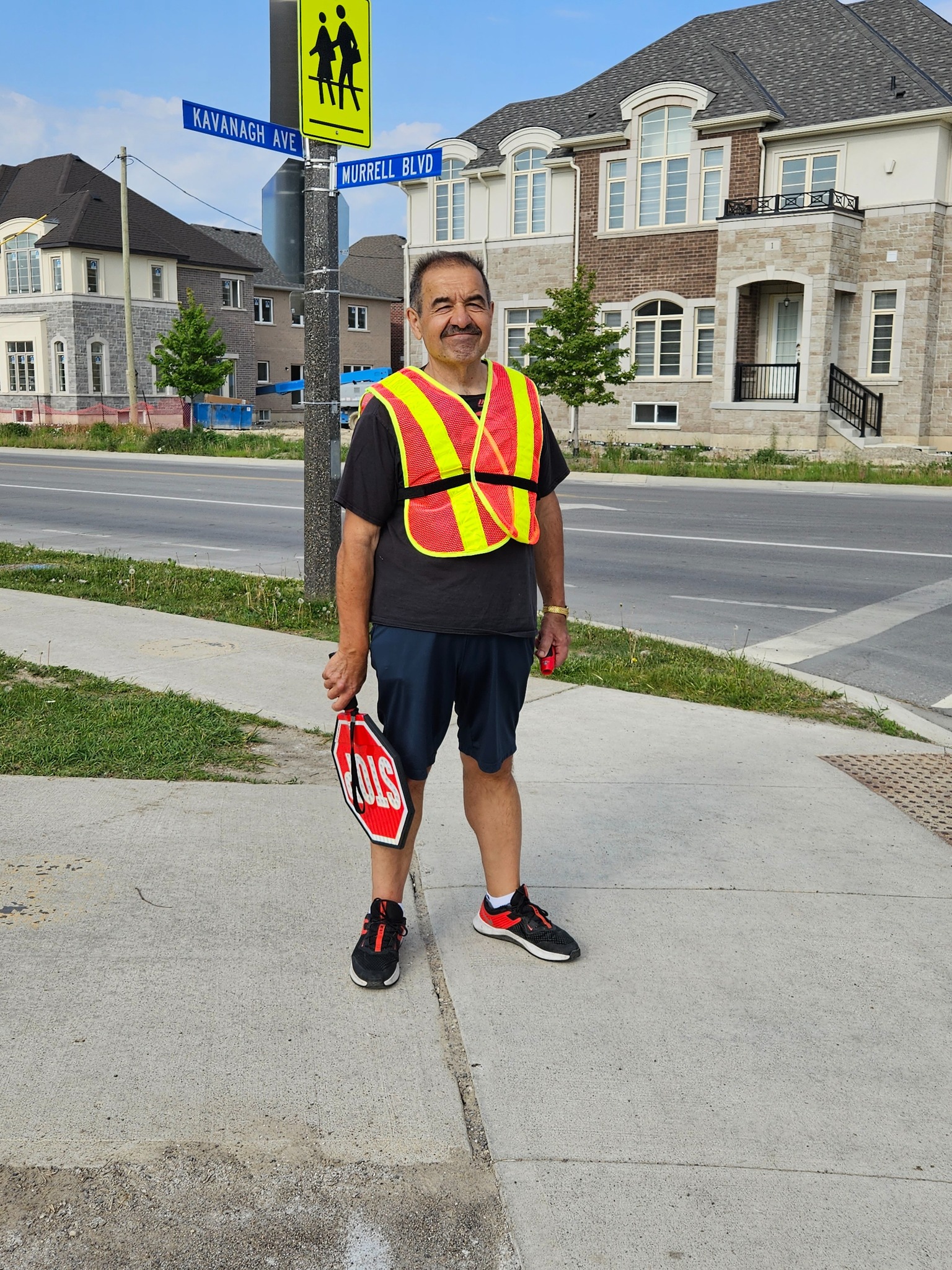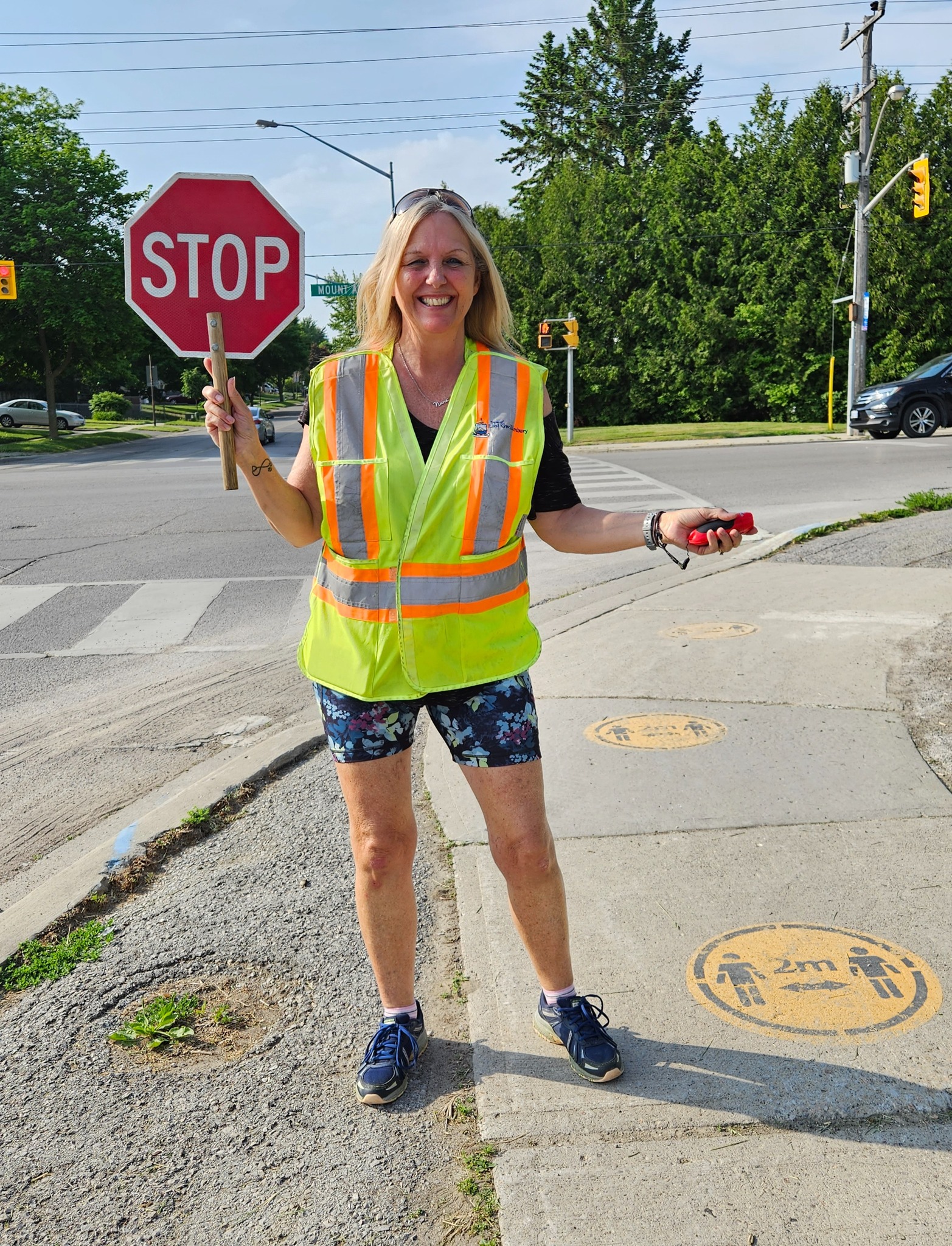Crossing Guard Program

The Town of East Gwillimbury (EG) employs adult Crossing Guards to ensure the safe crossing of students as they travel to and from school. There are crossing guards at all school locations throughout the Town of East Gwillimbury. Crossing guards are responsible for crossing persons across a highway with a speed limit not in excess of 60km/h shall, prior to entering the roadway, display a school crossing stop sign in an upright position so that it is visible to vehicles approaching from each direction and shall continue to so display the school crossing stop sign until all persons, including the school crossing guard, have cleared the roadway.
We accept applications throughout the year for Crossing Guards and hire on an as-needed basis. You must be a reliable and safety conscious individual that is willing to work up to 3 hours per day in various weather and traffic conditions. For more information or to apply for a Crossing Guard position, please view our current career opportunities page. travel to and from school. There are crossing guards at all school locations throughout the Town of East Gwillimbury. Crossing guards are responsible for crossing persons across a highway with a speed limit not more than 60km/h shall, prior to entering the roadway, display a school crossing stop sign in an upright position so that it is visible to vehicles approaching from each direction and shall continue to so display the school crossing stop sign until all persons, including the school crossing guard, have cleared the roadway.
School Crossing Guard Appreciation Week |
|
In cooperation with the Ontario Traffic Council's School Crossing Programs Committee, the School Crossing Guard Appreciation Day has expanded into a week-long celebration of School Crossing Guard Appreciation Week. Now from June 3 to 7 is School Crossing Guard Appreciation Week. In East Gwillimbury, we want to thank our Crossing Guards for helping to keep our community safe every day. |
Three whistle system |
|
Crossing Guards in the Town of East Gwillimbury use the Three Whistle System.
|
Safety practices for children |
|
Safety practices for adults |
|
Please respect the Crossing Guard rules when crossing the road with children. By doing so you:
|
Safe practices for motorists in school zones |
|
How to identify a crossing guard |
|
A Crossing Guard wears: 
|
Request a crossing guard |
| Please contact your school principal or school board. |
Contact Us
Our Customer Service Team is here to help!

